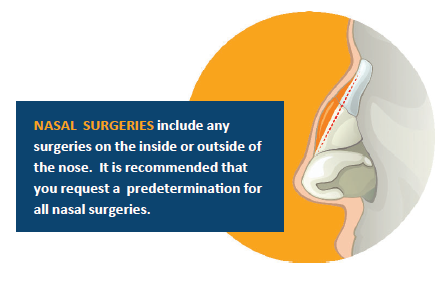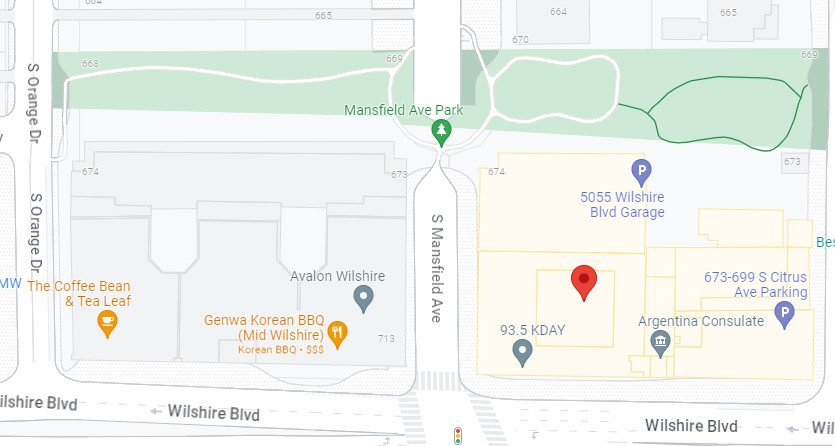Requesting a Predetermination from the Health Plan Before Your Surgery Can Help You Avoid Unexpected Costs
Published July 9, 2021
If you are planning to have surgery, an important step in preparing is to make sure that your procedure is covered by the Health Plan.
The Health Plan covers medically necessary visits, treatments and procedures for covered participants and their dependents. One of the Health Plan’s criteria for determining medical necessity includes whether the procedure or service is consistent with generally accepted medical guidelines and practices, which may require that certain evaluation or treatment options be performed prior to or instead of others. When standard medical practice is not followed, a treatment will be deemed not medically necessary and, therefore, will not be covered under the Health Plan.
While you might assume that whatever treatment plan your doctor recommends is considered medically necessary under the Health Plan, this may not be the case if the treatment plan is not consistent with standard medical practices. If surgery is performed but later determined not to have been medically necessary, you may be held responsible for the full cost of the procedure, leaving you with significant unanticipated expenses.
A predetermination is a written analysis, provided by the Health Plan upon request, which evaluates the medical necessity of a particular procedure or treatment before you receive it. A predetermination will provide you with information on how the Health Plan might apply benefits for the service in question, but it does not guarantee coverage. A final determination of coverage can be made only after the procedure has been performed, upon processing the claim and reviewing any additional information and records submitted.
Predetermination vs Preauthorization
A “predetermination” is not the same as a “preauthorization.” Predetermination is a voluntary request for information from the Health Plan to help determine ahead of time whether a treatment might be considered medically necessary and estimate Health Plan coverage. Preauthorization, on the other hand, is a required step your provider must take to confirm Health Plan coverage for certain services, including inpatient hospital stays, residential care, partial hospitalization, intensive outpatient treatment and certain prescription drugs. Preauthorizations are conducted by Anthem Blue Cross’s Utilization Management Department. In contrast to predeterminations, preauthorizations guarantee the authorized procedures will be covered.
Two Common Surgeries For Which Predeterminations Are Recommended
The most common surgeries for which voluntary predeterminations are recommended are orthopedic surgeries and nasal surgeries. Here are some things to consider about each:
Orthopedic Surgery

Orthopedic surgeries might be recommended by doctors as a first course of treatment. However, surgery as a first response is generally not standard medical practice in treating orthopedic conditions and may not be considered medically necessary by the Health Plan. If your doctor is advising that your condition does not require standard medical care prior to surgery, the rationale for this decision needs to be clearly documented in your medical records.
According to standard medical practice, before advancing to orthopedic surgery, you should have first tried some or all of the following modalities/studies:
- Nonsteroidal anti-inflammatory drug;
- Physical therapy;
- Home exercise program;
- Cortisone injections;
- Medications; and
- Diagnostic imaging confirming the diagnosis.
When in doubt, review any planned procedures with your doctor so you have a full understanding of your surgery and its costs. If you are uncertain as to whether your orthopedic surgery is medically necessary, you should request a voluntary predetermination from the Health Plan before receiving the service. A predetermination will help you evaluate ahead of time whether the treatment is considered medically necessary and whether it will be covered.
Nasal Surgery

For nasal conditions such as a deviated septum or chronic sinusitis, doctors sometimes recommend immediate surgery, even though standard medical practice—similar to the orthopedic surgery example—suggests utilizing non-surgical treatments prior to considering surgical intervention. According to standard medical pratice, before advancing to nasal surgery, you should have first tried some or all of the following with no success:
- Decongestants;
- Nasal steroid sprays;
- Anhistamines for Nasal Septum Deviation;
- Saline nasal irrigation for Chronic Sinusitis (ex: Neti Pot);
- Antibiotics; and
- Allergy evaluation.
Be aware, however, that even if you have followed standard medical procedure, given the complex nature of nasal surgery, some features of a surgery may be considered medically necessary while others may not. Rhinoplasty, for example, will likely be considered not medically necessary, as will any other cosmetic procedure.
Conclusion
One way to avoid unexpected out-of-pocket costs for your surgery is to request a predetermination from the Health Plan before the surgery is performed. Although a predetermination is not a guarantee of coverage, it will provide useful information about your potential out-of-pocket costs for a procedure so that you and your doctor can proceed accordingly. By requesting the predetermination, you can avoid surprise expenses.
If you are planning a surgery or would like information on how to request a voluntary predetermination from the Health Plan, visit www.dgaplans.org/Predeterminations. You can also contact the Health Plan’s Participant Services Department at (877) 866-2200, Ext. 401.


 OFFICE LOCATION & HOURS:
OFFICE LOCATION & HOURS:
 MEETING INFORMATION:
MEETING INFORMATION: FAXES:
FAXES: